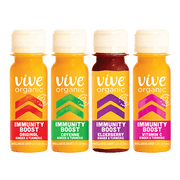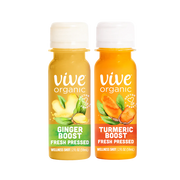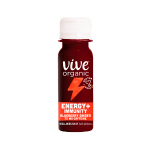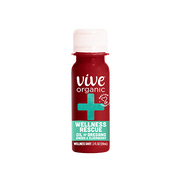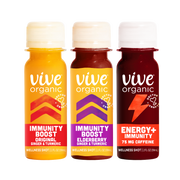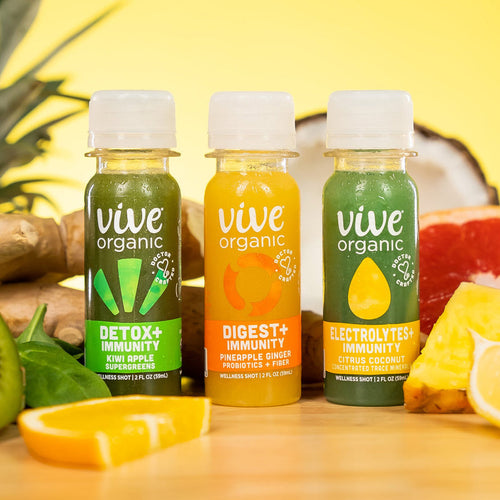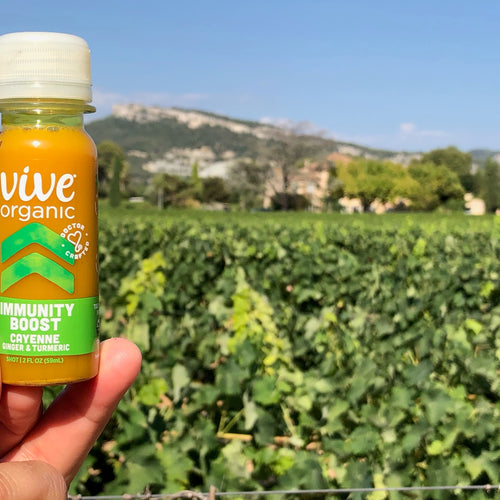We all seem to be on a quest to learn more about what we can do to improve our health. There just seems to be so much information out there, that it can be challenging to know what is a credible resource.
In this blog, we discuss the basics of the immune system, how it functions, and 6 simple ways you may want to consider, to help support your immune system and your overall health and wellness. Our focus is also to encourage you to build healthy daily habits that will lead to long term health rewards and lifestyle changes that will keep your immune system at its best all year long.
Understanding the Immune System
We certainly know there is great importance placed on the role of immunity when it comes to our health. Perhaps you, like many over the past few years really started to pay closer attention to ways that you could support your immune system.
The immune system is a complex biological system of cells, tissues, and organs that protects us from foreign bodies (pathogens) like bacteria, a virus, or even a fungus that may invade the body.1 It works around the clock, ensuring that we are able to respond appropriately to any pathogen.
There are various cells that moderate the immune responses like B cells, T cells and natural killer cells (NK), and mast cells to name a few, and then there is the gastrointestinal tract (GI) or gut that supports our immunity as well.
Did you know that your gastrointestinal tract (GI) or gut houses approximately 70-80% of your body’s immune cells?2 Incredible — right? Well stay tuned to see how the gut provides immune support.
The Gut Microbiome and Immune System Connection
We are each born with an individual blueprint of gut flora that make up the bacteria in our microbiome. Over time, however, we see our healthy gut flora start to diminish — oftentimes influenced by diet, stress, illness, or medication, making it crucial for us to replenish those healthy bacteria.2
We know that the role nutrition plays in supporting immunity and gut health translates to improving our overall health. Here are some key components to support a healthy immune system.
Probiotics
Probiotics are live, good bacteria that naturally live in our body and part of our microbiome. These super little gut helpers lend benefits to the host. Research indicates that probiotics are essential to our immune response. They make some antibodies and help the body with the production of immune proteins called cytokines.3 Probiotics also help break down food, into nutrients that are readily available for absorption.4
Some probiotics are present naturally in fermented foods like yeasts, kefir (fermented milk), yogurt with live and active cultures, kombucha, and sauerkraut that hasn’t been heated to a high temperature when prepared.5 Some food products may also have probiotics added to them.
Though many of us don’t eat these foods daily, always speak with your healthcare practitioner if you are a candidate for a probiotic in a supplemental form.
Prebiotics
Prebiotics are the non-digestible dietary fiber and resistance starches found in many foods such as Jerusalem artichoke, asparagus, chicory, garlic, onions, and legumes.6 Prebiotics are known to be pivotal in gut and immune health, because they help to support specific microbiota of the gut.
Postbiotics
Kind of new to science are postbiotics. Postbiotics are metabolites released by living bacteria in the gut.7 There are many types and the exact function of postbiotics are still being studied.8 One type of postbiotic are short-chain fatty acids (SCFAs). SFCAs have been known to produce T cells in the intestine, supporting immunity.8 In fact, scientific data suggest that postbiotics also contribute to protecting the host since they have antioxidant and antibacterial properties too.7
Whoa - that was a lot of science, but now you have a better understanding of how nutrition can support ways to boost the immune system. In addition to your dietary intake, other factors may contribute to giving your immune system some support. So, let’s read on!
6 Steps on How to Boost the Immune System — Back to Basics
1. Nutrition 101
Be mindful of your food choices before you start to fill your plate. You know that we are encouraged to invest in variety — foods from all of the food groups and servings that provide essential nutrients including robust immune supporting ones like vitamin C, vitamin D and Beta carotene, zinc, protein, and even pre and probiotics!9 Keep the focus on color — fruits and vegetables to complement your whole grains, low fat dairy, and lean protein selections.
Not sure where to start? Check out the U.S. Department of Agriculture’s (USDA) MyPlate.10 A tool to help you build a healthy plate focusing on nutrient balance.
Keep in mind however, that this is a general nutrition resource, and it is always best to meet with your healthcare practitioner or a Registered Dietitian to assess your needs and customize what may benefit you most! Also, they may determine if it is necessary to add dietary supplements to fill any nutritional gaps.
2. Stay Hydrated
Also, let’s not forget the importance of staying well hydrated. Be sure to drink by schedule throughout the day — basically around the clock, rather than reaching for a cold glass of water when you are feeling parched. Fill up your water container early in the morning or before you go to bed to ensure you are ready for the day. Be mindful of your total intake or volume for the day.
Other beverages such as cold pressed juice, and even a cup of tea can be counted towards your fluids. Enjoy refreshing fruits like watermelon and cantaloupe and vegetables like celery, spinach, and lettuce that have a high-water content can add to your goal to stay hydrated, but they don’t replace your need for water and other liquids.
Monitor your intake of alcohol which can be dehydrating and is not a supporter of immunity.
3. Physical Activity
We know that engaging in regular physical activity is beneficial for our physical health and supports our mental well-being too. But how does it impact our immunity?
Research studies have shown that one 20–40-minute session of moderate-intensity exercise causes millions of immune cells to come to the defense of the body — a boost to the immune system.11 Sounds amazing, but what if you can’t get that get up and go?
If you are still debating how you will accomplish this goal, look to what you are currently doing, then look to slowly add a few minutes to your routine until over time you reach your goals. Remember, it is important to be consistent each day, by doing some type of activity that keeps you on your feet and that you enjoy!
Housecleaning, gardening, a good game of pickleball, or just walking and catching up with a neighbor all count — so keep moving ahead.
Track your daily accomplishments and you will see the great strides you are making. There are numerous activity trackers to choose from or you can simply record your daily stats on a calendar. Remember those paper things on the wall? They still work!
4. Manage Stress
The word stress seems to be frequently used in many of our daily conversations. Think about how many times when someone asks how you are doing, you respond with, “I’m stressed”? Yikes!
Stress can actually depress the immune supporting cells in our bodies making it more difficult to fight off infections or illnesses.12
Luckily there are several ways to help you to manage your stress.
Take a break. Set time to step away from your desk and take a walk, try some deep breathing exercises in a quiet place, meditate, or even take a few minutes to just sit outside and enjoy the serenity of nature.
Chill with some tunes. Some studies demonstrated that listening to music can decrease the stress hormone, cortisol, and feelings of being stressed.12 Isn’t that cool?
Connect. Rather than lying on your couch and binging on movies or scrolling for hours on your phone, call a friend to meet up with. Why not make that a weekly social get-together? Socializing does the mind and body good!
Check out wellness perks. Does your workplace offer any wellness benefits that interest you? Find out more and take advantage of those perks that can support your physical and mental well-being like yoga or Pilates classes, health coaching sessions, or access to a therapist. How great are all of these?
Seek help if needed. Look for support from trained professionals if you feel or think that you may need help or if you want to proactively find someone to help you set up some stress-reducing strategies.
5. Prioritize Your Sleep Health
Getting at least 7-9 hours of quality sleep each night is essential for adults. Lack of proper sleep may contribute to a decline in your immunity.9 A disrupted sleep cycle may increase cortisol levels and mess with the natural production of the sleep hormone, melatonin.
Ditch the devices, and look forward to drawing the shades, and get into bed at the same time each evening. It may take a concerted effort but stay diligent each evening to reset your sleep status!
6. Keep Regular Medical Visits
Candid conversations with your healthcare practitioner are important not only for your immune health, but also for your overall well-being. Your healthcare practitioner (HCP) sees the larger picture, but only you know what may be concerning you, even though it is not ‘visible.’
Share your goals, successes, and even your relapses with your HCP since these are important to your overall health and well-being.
Keep positive, enjoy each day, and practice self-care. Sometimes, going back to the basics and practicing some old-school methods to relax, eat better, and enjoy daily movement may be just what you need to know how to boost your immune system!
The prescription for boosting your immune system includes focusing on some of the key areas we discussed so that you can feel confident on the daily that you are working hard to build a strong immune system to carry you all year long.
Disclaimer: This blog contains promotional content about our products. The information provided in this blog is for educational and informational purposes only and should not be construed as medical advice. While the nutritional information and health tips shared here are based on published studies and expert insights, they should not replace advice and treatment from a healthcare professional. Always consult a qualified healthcare provider with any questions you may have regarding a medical condition or health objectives.
References
- “Introduction to the Immune Response.” Primer to the Immune Response (2014): 3–20. doi:10.1016/B978-0-12-385245-8.00001-7. https://www.ncbi.nlm.nih.gov/pmc/articles/PMC7184560/
- Wiertsema, Selma P et al. “The Interplay between the Gut Microbiome and the Immune System in the Context of Infectious Diseases throughout Life and the Role of Nutrition in Optimizing Treatment Strategies.” Nutrients vol. 13,3 886. 9 Mar. 2021. doi:10.3390/nu13030886. https://www.ncbi.nlm.nih.gov/pmc/articles/PMC8001875/
- Latif, Anam et al. “Probiotics: mechanism of action, health benefits and their application in food industries.” Frontiers in Microbiology vol. 14 1216674. 17 Aug. 2023. doi:10.3389/fmicb.2023.1216674. https://www.ncbi.nlm.nih.gov/pmc/articles/PMC10470842/
- “NIH Human Microbiome Project defines normal bacterial makeup of the body.” www.genome.gov. 2012. https://www.genome.gov/27549144/2012-release-nih-human-microbiome-project-defines-normal-bacterial-makeup-of-the-body
- “Probiotics — Health Professional Fact Sheet.” NIH.gov. 2023. https://ods.od.nih.gov/factsheets/Probiotics-HealthProfessional/
- Bedu-Ferrari, Cassandre et al. “Prebiotics and the Human Gut Microbiota: From Breakdown Mechanisms to the Impact on Metabolic Health.” Nutrients vol. 14,10 2096. 17 May 2022. doi:10.3390/nu14102096. https://www.ncbi.nlm.nih.gov/pmc/articles/PMC9147914/
- Raman, Ryan. “What Are Postbiotics? A Comprehensive Overview.” Healthline, 2021. https://www.healthline.com/nutrition/postbiotics#health-benefits
- Liang, Bing, and Dongming Xing. “The Current and Future Perspectives of Postbiotics.” Probiotics and Antimicrobial Proteins vol. 15,6 (2023): 1626-1643. doi:10.1007/s12602-023-10045-x. https://www.ncbi.nlm.nih.gov/pmc/articles/PMC9913028/
- Ellis, Ester. “How to Keep Your Immune System Healthy.” Eatright.org, 2021. https://www.eatright.org/health/wellness/healthful-habits/how-to-keep-your-immune-system-healthy
- “What is MyPlate?” USDA MyPlate.gov. https://www.myplate.gov/eat-healthy/what-is-myplate
- da Silveira, Matheus Pelinski et al. “Physical exercise as a tool to help the immune system against COVID-19: an integrative review of the current literature.” Clinical and Experimental Medicine vol. 21,1 (2021): 15-28. doi:10.1007/s10238-020-00650-3. https://www.ncbi.nlm.nih.gov/pmc/articles/PMC7387807/
- “How Does Stress Affect the Immune System?” University of Maryland Medical System. 2024. https://health.umms.org/2020/11/10/stress-immune-system/
